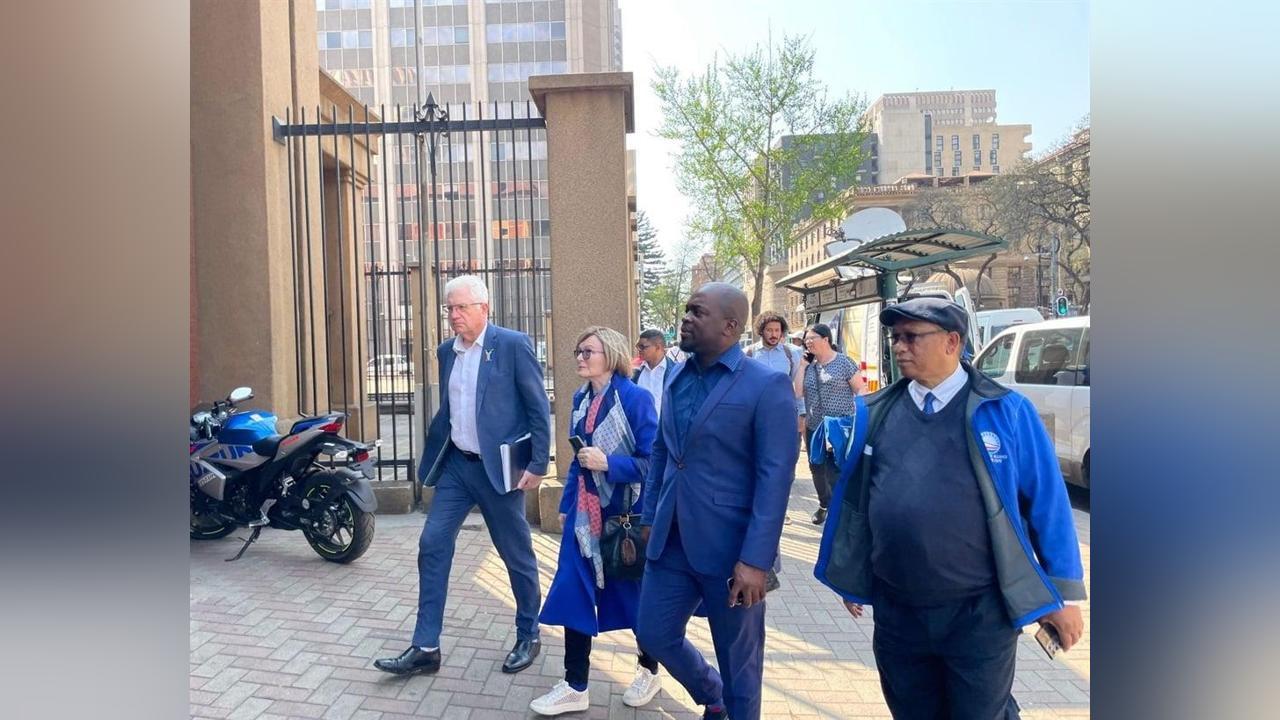Africa-Press – South-Africa. The DA wants the Gauteng High Court sitting in Pretoria to declare the government’s inability to prevent the ongoing energy crisis unlawful, arguing that it violates citizens’ Bill of Rights.
The DA argued its court matter, which is based on two parts, on Monday.
The first argument seeks to have the government declared careless and not acting urgently to prevent continuous load shedding at high stages.
Advocate Anton Katz SC, arguing for the DA, said the party acknowledged that load shedding as an act can’t be deemed unconstitutional because it is a necessary tool to ensure the country’s electricity grid does not collapse.
However, the DA contends that it is the behaviour of the government in not doing enough to ease the harm caused by such an energy crisis that deserves punishment by a declaration from the court as unconstitutional.
“By energy crisis, the DA means the recurring, severe, unpredictable load shedding since 2008, which Eskom says it is forced to implement to avoid a national grid collapse. The DA does not seek a declarator that load shedding is unconstitutional.
“The DA accepts that load shedding per se may be necessary to avoid a grid collapse. The energy crisis that the government should have prevented is the recurring, severe load shedding implemented to avoid grid collapse. This load shedding occurs regularly, for extended periods, and unpredictably,” Katz said.
Katz, arguing for the DA, said the ANC government had known as far back as the 1990s that an energy crisis was possible if Eskom did not maintain its power stations and build more infrastructure.
The DA’s arguments continued with Katz saying that post-democracy brought millions more citizens to the grid.
Still, the government and Eskom should have done something to ensure the grid was ready and fully functional for years.
The DA believes that 96% of load shedding would have been preventable if Eskom had built more power stations.
“South Africa added 2.5 million households to the grid within four years after apartheid. The government ignored the obvious implication of this success: more electricity demand requires more electricity supply.”
Katz said:
“The crisis has reached the point where if it continues without successful intervention, the crisis will cause irreparable harm to South Africa, economically and socially. After 15 years of load shedding, there is little to no room for failure,” Katz argued.
Another relief sought by the DA is for a special master to be appointed by the court to oversee the government and Eskom’s energy crisis intervention plans.
The DA cited previously reported corruption at Eskom and the government’s delayed response, to argue that a third hand was needed to monitor and rescue the country from load shedding.
“After 15 years of load shedding, there is little to no room for failure. A special master is a mechanism available to this court to mitigate the possibility of further and worse constitutional harm caused by the energy crisis. A special master will assist the respondents, this court, the applicants, and the public in monitoring and implementing a plan to end the energy crisis,” Katz argued.
Arguing on behalf of the National Energy Regulator for South Africa (Nersa), Ngwako Maenetje, said the regulator did not understand why it was included in the application because it did not have any hand in load shedding.
On Tuesday, the government is set to argue that it had a plan to address load shedding within the framework set out by President Cyril Ramaphosa in the Energy Action Plan.
The government blames power station breakdowns and corruption for the delays in addressing the energy crisis, which is similar to the DA’s argument. But the difference is that the state does not believe a special master should be appointed but concedes that dealing with ongoing power cuts has been “challenging”.
“It is evident from the above that difficult and technical decisions were required, often of a policy nature. Corruption that could not be predicted hindered progress. The approach to delay maintenance was made in the face of a concern regarding interrupting electricity supply,” the government’s responding papers read.
“Non-payment by municipalities contributed to insufficient resources at Eskom and a heavy debt burden. Others – such as unforeseen breakdowns and delays in the construction of Medupi and Kusile – were just unexpected. Many others were controlled responses to difficult situations, which had undesired but unavoidable consequences.
“The president, on behalf of the government, has acknowledged the impact of load shedding on rights. But it is a necessary measure in the circumstances, which Eskom is deploying in a manner as least restrictive of rights as possible. He (Ramaphosa) has established a multilateral body within the Presidency to ensure the implementation of the plan, and he has appointed the minister of electricity to co-ordinate the entities responsible for the implementation of the energy plan,” the government submitted.
The court case continues on Tuesday, where arguments will resume, but a separate application that deals with tariffs approved by Nersa will be argued.
The DA wants the recent tariff hikes of 30% over three years to be declared unlawful.
For More News And Analysis About South-Africa Follow Africa-Press






